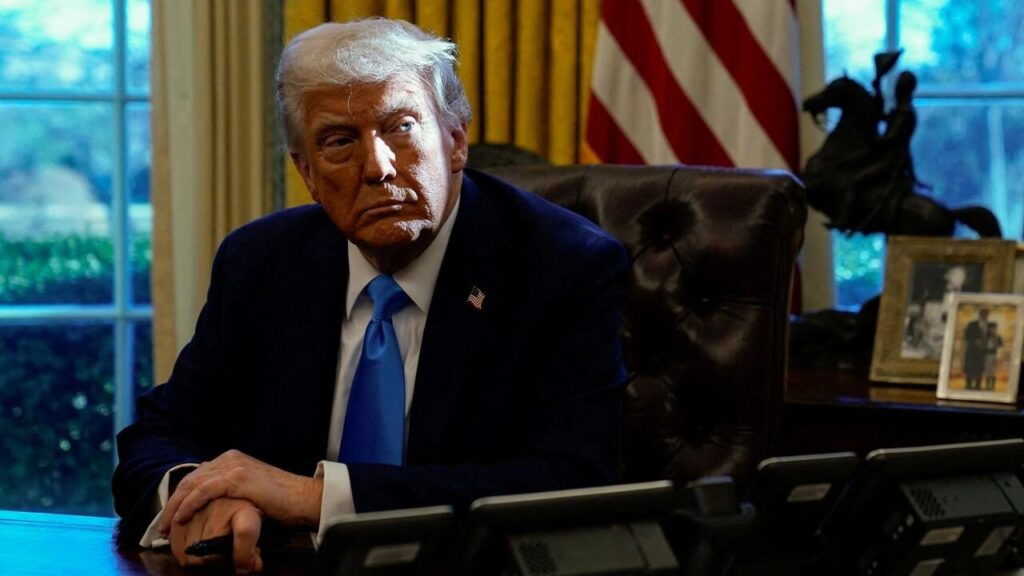Tehran – The ghost of Nixon’s “Theory of Madman” is a big hit on Donald Trump’s presidency. This is a strategy based on projecting irrational attacks to force concessions from the enemy. The premise is simple. By appearing to be trustworthy of incredible threats, leaders can blackmail their weak states and extract the greatest strategic and economic military benefits. For Trump, this approach was not only theoretical, but also the basis of his foreign policy, particularly in his dealings with West Asia and China.
This was less obvious than recent deals with the Persian Gulf countries. During the tour in May, Trump’s administration extracted an estimated $3.2 trillion from Muslim countries under the flag of “Iranphobia” and poured these funds into the US Israeli defense industry, which is largely dominated by US Republicans and neoconservatives. What was sold as an economic stimulus package had a darker meaning. Mohammed bin Salman openly framed these deals as job creation for Americans, even if the weapons they purchased were deployed to strengthen the Zionist regime’s campaigns in Gaza and Yemen, and perpetuated the genocide under security.
Trump’s main conflict: clash with China
Under the plays of Western Asian diplomacy, Trump’s ultimate challenge: China. As the West’s primary economic and military rival, China’s rise forced the United States to recalibrate its global strategy. Trump’s negotiations with Iran, for example, may be less about Tehran, ensuring Israel’s security, freeing up American resources, and facing Beijing through a hard, semi-hard power play.
But Trump’s volatile policymaking has created an opening for smaller states to take advantage of. In this unstable landscape, the threat balance strategy emerged as the most effective way for the nation to extract concessions from Washington.
Threat Balance Strategy
To understand why this approach worked, we must examine how Trump’s one-sided backfires. His rise – realizing US hard-stakes – has transformed America into a systematic threat to the international order. Global Power shows that the US-China tariff war, the promotion of BRICS-related currencies, and the exclusion of the dollar from China-Russia’s trade all represented a world that violated American coercion.
This shift was inevitable. The establishment of the United States has long recognized that economic and military declines have made multilateral hegemony unsustainable. The reality was later tacitly recognized by the Vice President of the United States. This is where Stephen Walt’s work becomes extremely important. His revision of Kenneth Waltz’s balance of power theory claims that the state is not just about raw power, but also about rebellious threats (a fusion of power, intention, and proximity). Select your state:
– Balance (order with attacker) or
– Bandwagon (submitted for short-term profit).
Walt’s insight explains why weak states resist. Not only is the ability gap, but the recognition of subjective threats promotes rebellion. This framework is key to understanding Iran’s resilience during the Trump era.
Iran’s strategic stance in the Trump era
Under the leadership of the Islamic Revolution, Iran’s foreign policy has been remarkably consistent from Reisi to Pezeshkian, with figures like Foreign Minister Aragich and the late Amir Abdrahian advancing the doctrine of dignified pragmatism. Outreach to rivals like Saudi Arabia paid off the Persian Gulf countries despite Israel’s pressure.
At the same time, indirect negotiations with Washington reduced conflict costs. The axis of resistance has come to view Iran as a steady negotiator. The red lines of leaders (enrichment rights, defense autonomy, regional influence) were unnegotiable, but Tehran showed openness by adopting global norms such as the Palermo Treaty.
However, the challenges remain. The Iranian economy, vulnerable to the psychological shock of long-term consultations, requires more stringent coordination between the central bank and the Ministry of Economic Affairs to strengthen its diplomatic leverage. The calculations are clear. Resistance is costly, but it pales beside the humiliation of compromise. As the nation has demonstrated for decades, sovereignty and martian heritage outweigh the temporary material burden.
Dr. Mohammad Shekalchian, member of the Iranian Scientific Association for Studies in Western Asia

